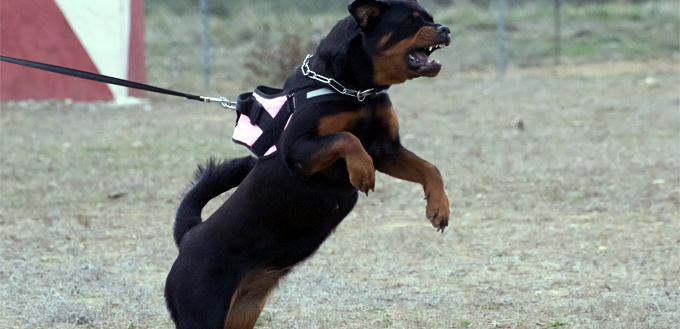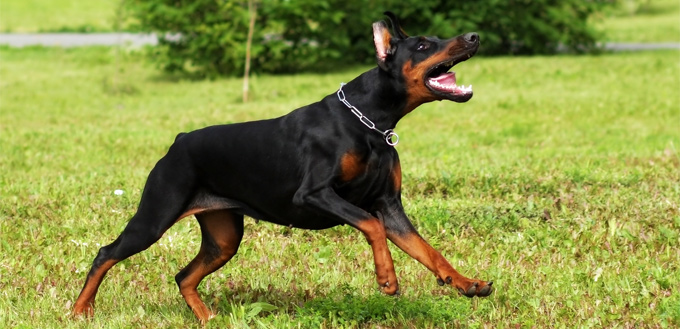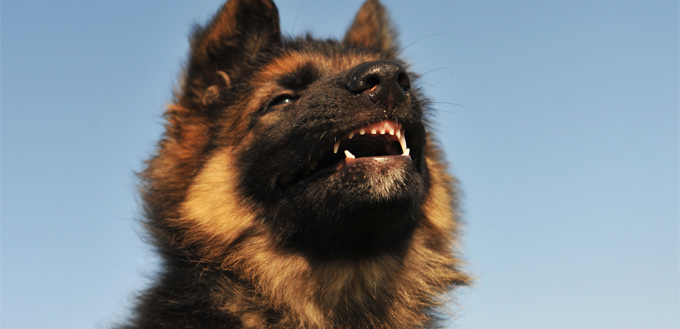If someone is grinding teeth in anger, they’re probably best left alone! Grinding teeth is a basic human habit, but ever seen a dog grind their teeth? Dogs too grind their teeth! However, it’s usually not out of anger. It depends on the breed of your dog and the size of their jawbone that causes them to grind teeth. Typically, vets refer to it as bruxism, which can be a sign of other health conditions and wellbeing issue. This is something that must never go unchecked!
According to the National Pet Dental Association, dogs that grind their teeth often post the risk of running down the enamel on their teeth. This, in turn, could cause serious dental problems that include fracture, tooth infections, exposed pulp and not to forget about constant pain in the teeth and gums. Therefore, it’s better to get it examined by your veterinary dentist ASAP, who can suggest a treatment plan.
Here are some of the reasons why your little fellow may be grinding their teeth.

Loose Tooth
For puppies, loose teeth are not really an issue. Like a healthy human baby, your puppy’s first teeth (also known as deciduous teeth or milk teeth) will loosen and fall off in order to make space for larger and permanent teeth. This usually occurs when they are about 4 – 6 months of age and end by the time they are 8 months old. That’s when all their 42 adult teeth grow.
On the other hand, loose teeth in adult dogs are an indication of advanced periodontal disease or trauma to their mouth. Loose teeth need a thorough examination by the vet and won’t correct by itself.
Misaligned Teeth
One problem that dogs face is misaligned or crooked teeth of their upper and lower jaws. If the arrangement of the teeth is extreme, your canine may face serious problems having to chew and drink regularly. On top of that, crooked teeth rub against the delicate tissues’ insider their mouth, making open sores and pain. In that case, vets would recommend to cap the crooked tooth or extract it entirely so that it can’t create any more problems.
Broken Tooth
Fractured or broken teeth is no exception in both cats and dogs. Due to trauma (got hit by a car) or your pet animal chewing hard objects, broken tooth leaves the pulp and root lay bared to the germs in the mouth, which then leads to infection. This infection causes abscesses and bone destruction. Even worse, if it’s left untreated, the infection will travel through their bloodstream to the different parts of their body, leading to functional damage of the vital organs.
Vets usually suggest 3 options for a broken or fractured tooth:
- Root canal therapy, which is the most common therapy and is as well the best one. The teeth remain healthy with intact roots
- A vital pulpotomy – a technique whereby the pulp is removed, and the area is sterilized, sealing the pulp chamber. This is more applicable for dogs with an injured tooth under the age of 18 months or younger.
- Last but not least, the procedure that vets tend to avoid is tooth extraction. This is obviously more painful for the canine and is also a complicated process. Worst case scenario, the dog patient loses chewing function of that very tooth.
Bruxism
Dog grinding teeth (bruxism) needs immediate vet attention in order to stop the wastage of their tooth enamel. The teeth grinding habit can be related to jawbone abnormalities and stress, which is indicating to an even bigger issue. Bruxism is a sign that your canine may be in extreme pain, more often than not, mouth or abdominal pain.
The treatment begins when you can find the actual problem of the issue. Is your dog grinding teeth just because of jaw misalignment or is it something else that’s worrying them? Your vet will recommend a behavioral therapy that will solve the teeth grinding. Or they might even suggest a medical treatment to relieve them from any kind of distress.

What Can I Do When My Dog is Grinding His Teeth?
The first thing that you’ll need to do is consult your holistic vet. Your pet dog grinding his teeth is no joke! Go for a full physical examination and determine whether your dog has a misaligned jawbone or is suffering from any trauma that’s causing such terrible teeth grinding. A vet orthodontist is likely to resolve this problem, so consult one if needed.
In such cases, we’ll always say it’s better to visit a specialist because only then you will be able to determine what is actually causing it. For instance, the pain might be a thing of their mouth, requiring extraction or other treatments. If the issues are not linked to jaw misalignment, chances are your canine maybe experiences stress or anxiety. In that case, your vet will recommend some medication to alleviate their stress along with other behavioral therapy to stop the teeth grinding.
How Can I Possibly Prevent Teeth Grinding Behavior?
A balanced-nutritional diet is a key to avoid any health-related problems along with making sure that your canine is getting enough exercise and mental stimulation. Apart from that, we would highly prioritize training! Training is something that you cannot substitute anything with for a healthy pet dog. Having enough mental stimulation will prevent them from developing destructive behaviors – one of which is teeth grinding.
This is one of the reasons why we always emphasize annual check-up with your holistic vet. It ensures that your canine is not suffering from any potential risk and if so, the problem is addressed way before it becomes a serious underlying cause.
There are a number of things that you can actually do to help promote your canine’s mental health and reduce anxiety:
- Dogs are social beings. They need to meet their friends (neighbor’s dog), people, places, other animals and experiences that will help them refresh their mind once a while.
- Training or more specifically obedience training can help relieve anxiety. Training sessions with your dog can do wonders in terms of bonding with you and help in establishing trust.
- Know what triggers your dog’s anxiety. Is it certain people? Or in certain situations? Accordingly, prepare him and possibly keep him away from them. Create a space for him where he feels safe.
Bottom Line
Honestly, the habit of teeth grinding in dogs sounds a bit scary. It could be a sign of deteriorating physical or mental health conditions. Your furry friend might be excited over a new toy, or it could be something as serious as an oral pain. Not to forget about advanced neurological problems!

Since most of the time, teeth grinding in dogs are caused by oral pain, it’s important that you take good care of your canine’s oral health and hygiene. Follow a dental routine as suggested by your vet. This will help you fix any problems before it can become something as severe and painful as teeth grinding in dogs.
Related Posts: Best Dog Toothpaste and Dog Toothbrushes
With that, it’s a wrap to our guide on dog teeth grinding! We hope it was useful and informative. Don’t hesitate to leave your comments below or if you have any questions, we’d love to answer!
Sources:
- Krista Williams, BSc, DVM, Teeth, Teething and Chewing in Puppies, VCA Hospitals
- How to Tell If Your Dog Has Dental Disease, The MSPCA–Angell






